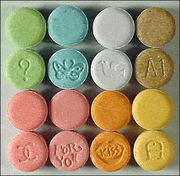Published: March 17, 2009
Does stress damage the brain? In the March 1st issue of Biological Psychiatry, published by Elsevier, a paper by Tibor Hajszan and colleagues provides an important new chapter to this question.
This issue emerged in the 1990’s as an important clinical question with the observation by J. Douglas Bremner and colleagues, then at the VA National Center for Posttraumatic Stress Disorder (PTSD), that hippocampal volume was reduced in combat veterans with PTSD. [continue reading…]
Published: March 16, 2009
Claire Wilson interviews psychiatrist Simon Wessely for The New Scientist. Psychiatrist Simon Wessely explores diseases like chronic fatigue syndrome, and has suggested that some diseases can be exacerbated by our mindset.Â
How might most of us experience the effects of the mind on the body?
In an average week you probably experience numerous examples of how what’s going on around you affects your subjective health. Most people instinctively know that when bad things happen, they affect your body. You can’t sleep, you feel anxious, you’ve got butterflies in your stomach… you feel awful.
When does that turn into an illness?
Such symptoms only become a problem when people get trapped in excessively narrow explanations for illness – when they exclude any broader consideration of the many reasons why we feel the way we do. This is where the internet can do real harm. And sometimes people fall into the hands of charlatans who give them bogus explanations.
Link to continue reading
Source: New Scientist
Published: March 10, 2009

MDMA, which has been made criminally illegal worldwide, is taken most commonly in pill form.
Treatment with a pharmacological version of the drug ecstasy makes PSTD patients more receptive to psychotherapy, and contributes to lasting improvement. Norwegian researchers explain why.
People who have survived severe trauma – such as war, torture, disasters, or sexual assault – will often experience after-effects, in a condition called posttraumatic stress disorder (PTSD). The symptoms can include anxiety, uncontrolled emotional reactions, nightmares, intrusive memories, sleep and concentration difficulties, evasion of situations that resemble the trauma, and feelings of shame or amnesia. [continue reading…]
Posttraumatic stress disorder (PTSD)—but not exposure to traumatic events without the development of PTSD—may be associated with subsequent attempted suicide in young adults, according to a report in the March issue of Archives of General Psychiatry, one of the JAMA/Archives journals. [continue reading…]

